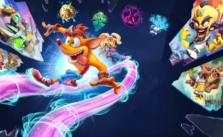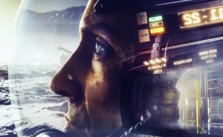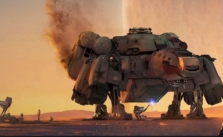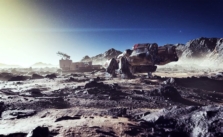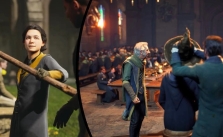Does Bethesda Have a Point to Prove with Starfield? – Opinion Piece
Given Bethesda’s impressive track record when it comes to developing games, the title of this article may trigger mixed emotions. Besides, I could write an equally extensive piece on how Todd Howard’s acclaimed studio established critical aspects of the open-world genre.
On that note, criticizing Bethesda’s competence would perhaps do an unfair disservice to their groundbreaking developmental contributions down the years. After all, Bethesda’s past resume includes some of the most celebrated experiences ever to grace the gaming scene. Not least, their longstanding Elder Scrolls series.
From the inspired imperial province of Cyrodil to the breathtaking expanses of Tamriel’s northernmost region, Bethesda was perhaps the first studio to fully embrace the open-world format, offering near-limitless levels of exploration while utilizing familiar fantasy themes and awe-inspiring aesthetics to teleport us to enchanting new worlds.
In Fallout 3, Todd Howard would see in the stark transition from beautifully majestic to bleakly dystopian. A franchise that would prove to be equally popular, despite its darkly ominous premise. And although some of these games may seem slightly archaic, at least by today’s standards, at the time, they set the gold standard for open-world experiences. Even today, they inspire, perhaps partly due to Jeremy’s Soul’s majestic musical compositions.
From Morrowind onwards, Bethesda would be known for its environmental storytelling. Whether citing the ravaged, bomb-blitzed wastelands of Fallout, or the sun-kissed winter lands of Skyrim’s Bleak Falls Barrow, every new entry would somehow arouse player senses with resplendent sights and sounds, instilling a palpable air of wonder with each stride taken.
For many, Bethesda was now an untouchable staple of the industry. An immovable mountain of sustained excellence, known for pumping out dependable triple experiences. Admittedly, these experiences had rough edges, from time to time, alongside an assortment of often comical bugs, but the sheer depth and quality of content overall far eclipsed any frailties.
That was until the arrival of Fallout 76, which marked a peculiar departure from the studio’s traditional single-player roots. The onus, this time around, was online connectivity. However, in hindsight, it would prove to be Bethesda’s most divisive undertaking yet.
The Nuclear Fallout of 76
In recent years, the industry’s monumental shift from single-player to more online-orientated play has forced its biggest studios to comply with ever-evolving trends. Even reputable AAA developers, the caliber of Naughty Dog and Rockstar, have voyaged into the universally played realm of online functionality. A game format whose widespread popularity is only set to soar in successive years.
Having garnered significant praise in the single-player department and after witnessing the successful ventures of other credited studios, Bethesda was ready to try its hand at online integration. In doing so, Todd and his team would riskily tinker with the familiar foundations of the Fallout franchise. Yet, unbeknownst to Bethesda, it was, for better a worse, a drastic sea change that would cause considerable controversy amongst its faithful fanbase.
During an E3 Livestream before release, Todd Howard would tell Geoff Keighley, “There are no NPC’s” in Fallout 76. Providing further insight, Howard would also stipulate that “every character you see is a real person.”
As a lifelong Fallout fan, myself, the notion of this newly implemented concept had caused alarm bells to ring out in my mind. Firstly, for me and many others, NPCs play an integral role in the Fallout experience, predominantly as they provide meaningful worldly context while issuing clarity in mission structure. Let alone a sense of believability.
Personally, having exposition fed purely through terminals and robots, although welcome in parts, eventually breaks the immersion.
Looking back, it’s difficult not to mark their exclusion as anything but a significant oversight on behalf of the developers or decision-makers – one which felt unusually out of touch with what players typically expect from a Fallout title.
Though Bethesda has made enormous strides forward since its release, 76’s initial problems were widespread and unavoidable in scale. Perhaps this Bethesda Game Studios Reddit post, in its acknowledgment of issues plaguing the game, best encapsulates player perception at the time.
“We know you’re frustrated and angry at the state of things right now, whether it’s the issues you’re running into in the game, or the lack of communication about fixes, updates, or news,” Bethesda explained.
Years later, in an interview with the Guardian, Todd Howard would reflect on 76’s release by admitting, “We let a lot of people down.”
Conclusion
If Fallout 76 was an apparent misfire for Bethesda, then their upcoming science-fiction-themed attraction, Starfield, may provide the perfect platform to impress.
Perhaps good news for Elder Scrolls fans, Todd Howard would later label Starfield “like Skyrim in space.” Let’s hope that’s the case, but with blackhole-voyaging dragons!
All jokes aside, in being powered by the latest generational hardware coupled with the all-new Creative Engine 2, all eyes remain fixated on Bethesda’s ambitious role-playing adventure when it lands later in the new year.
Those are my thoughts on Bethesda. Be sure to send us your suggestions in the comments section below.










